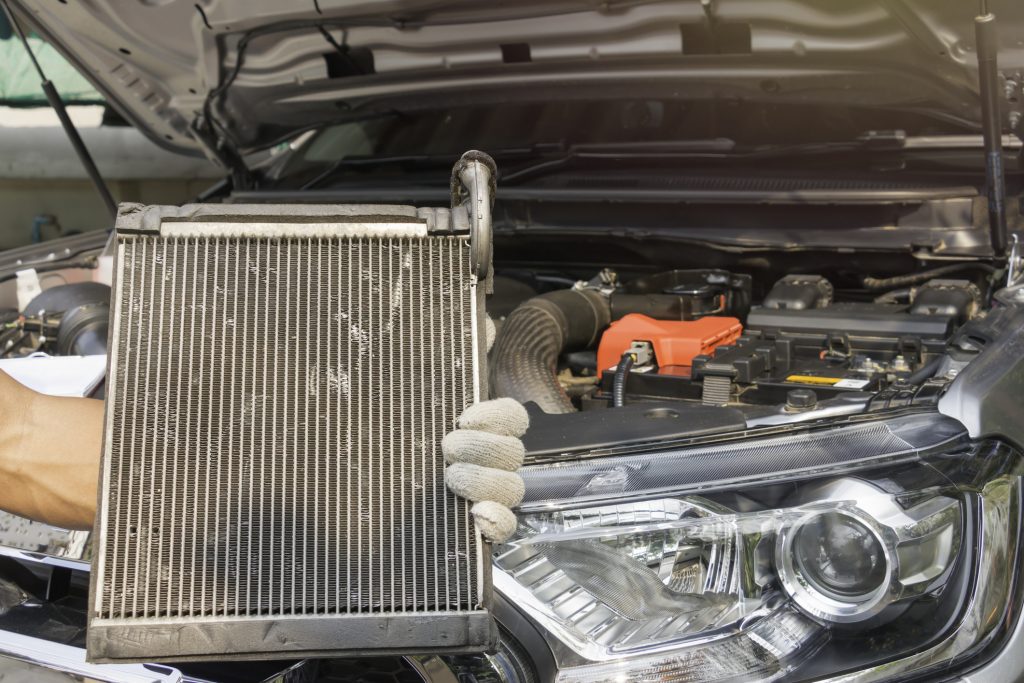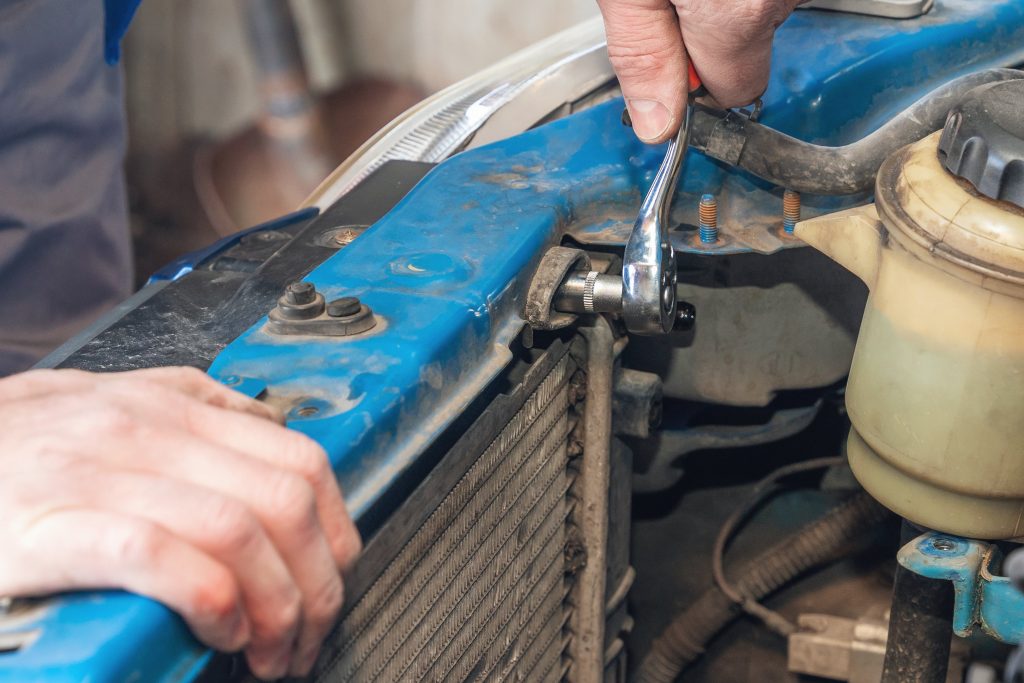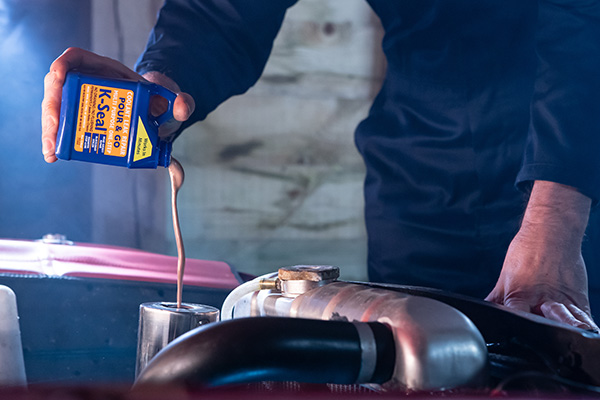Why is it important to have a functioning car radiator?
Your car radiator’s primary function is to keep your engine cool, preventing it from overheating. Something as “harmless” as a small radiator leak can develop into a serious issue if left untreated.

Issues that can occur as the result of an ignored radiator leak include:
An overheated engine
With coolant leaking out of the car radiator, there will be restrictions on your vehicle’s ability to regulate its temperature. This may cause the engine and radiator to overheat.
An overheated engine will cause the car to become difficult to drive—you may experience notable power drops, which could be a big problem on busy roads and highways.
A cracked engine block
The heat and pressure of an overheating engine due to a radiator leak can cause the engine block to crack or even melt.
A cracked engine block is an expensive repair that has no quick fix. If an untreated car radiator leak causes engine block damage, you could be over $3,000 out of pocket and off the road for some time.
A blown head gasket
If not treated quickly, a radiator leak can also lead to a blown head gasket.
A blown gasket will allow coolant to enter the car’s cylinders, potentially leading to severe engine damage. Head gasket failure can prevent the engine from lubricating properly, resulting in a number of issues.
How to identify a car radiator leak
Letting a radiator leak worsen may lead to a costly outcome, and could possibly put both you and your vehicle at risk. Catch leaks early by looking out for these common radiator leak symptoms:
- Pools of coolant leak under your car
- A frequently overheating engine
- Coolant levels which drop rapidly
At the first sign of any of these symptoms, grab yourself a bottle of K-Seal for a quick and easy fix.
How much will a radiator leak repair cost at a garage?
The cost of repairing a car radiator will vary depending on whether you do it yourself or employ a professional mechanic to do the job.
If you choose to flush the radiator yourself, you’ll be able to keep costs down and just pay for the new coolant. This is usually around $50. If you go to a mechanic, the cost will rise to around $90 depending on your car make and model.
If extensive damage has been done, however, replacing a car radiator can set you back anywhere between $300 and $900. Labor costs will cover the mechanic checking for leaks, removing the radiator, a whole system flush, and the installation of a new radiator.

Although these high costs may be off-putting if you feel that your engine is still functioning efficiently, it’s important to address any issues as soon as possible to prevent further, potentially dangerous damage.
How can the cost of radiator leak repairs vary?
Repairs required as a result of radiator leaks can vary from relatively cheap ‘quick-fixes’, to eye-watering engine replacements.
Minor repair costs
Minor repairs triggered by the side effect of a coolant leak will incur minimal costs. Heater hose replacement, thermostat replacement, and cooling fan wiring repairs will on average come to $100 or less.
Major repair costs
Major repairs and extensive engine work will be more expensive due to the nature of the damage. Water pump replacement, changing the heater core, car radiator replacements, and head gasket replacements can range from $500–$1,500.
Engine replacement
A badly overheated cylinder will need to be pressure tested and inspected for warping and engine block cracks or melting. These issues can lead to a complete engine rebuild and cost several $1,000 to fix.
Save on radiator leak repair costs with K-Seal
Using K-Seal to fix a radiator leak could end up saving you thousands of pounds. Rather than wait until an item needs replacing, avoid further damage and costs by recognizing the signs of a car radiator leak and acting quickly.

With K-Seal, you eliminate the risk of further engine damage and overheating. Our scientifically tested blend of chemicals and micro-fibers circulate through your vehicle’s engine, permanently filling holes, leaks, and cracks in the radiator or cooling system.
All you need to do is:
- Find your local K-Seal supplier and grab a bottle
- Shake and pour this trusted radiator stop leak into the coolant reservoir or radiator
- Run the engine to its operating temperature, and go!